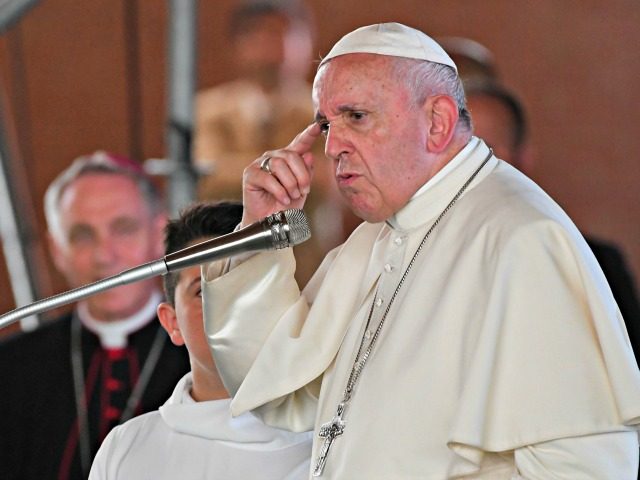ROME — Pope Francis displayed his solid ecological credentials this week, declaring that climate change is a “global emergency” and insisting that what he fears most is a loss of biodiversity.
In a wide-ranging interview published by the Italian daily La Stampa Friday, Pope Francis said that the upcoming Vatican synod of bishops on the Amazon region will focus heavily on environmental issues.
Asked why he convoked the synod, Francis said it is a “child” of his 2015 encyclical Laudato Si on care for creation. “Those who have not read it will never understand the Synod on the Amazon. Laudato Sì is not a green encyclical, it is a social encyclical, which is based on a ‘green’ reality, the custody of Creation.”
The pontiff went on to enumerate some of the information he has received regarding environmental devastation.
“A few months ago, seven fishermen told me: ‘In recent months we have collected six tons of plastic,’” he began. “The other day I read about a huge glacier in Iceland that has almost completely melted: they built a memorial for it. With Siberia’s wildfires, some glaciers in Greenland have melted by the ton. The people from a country in the Pacific are moving away because in 20 years the island on which they live will no longer be there.”
In the midst of all these disasters, the pope said that what “most shocked” him was Earth Overshoot Day, a day marked by the global environmentalist movement as the moment when the world population has allegedly consumed all the earth’s resources allocated for the year — fruit and vegetables, meat and fish, water and wood — and so has begun to “overexploit” the planet.
“On July 29th, we used up all the renewable resources for 2019. As of July 30, we started consuming more resources than the planet can regenerate in a year. This is very serious. It is a global emergency,” he said.
“Ours will be an urgent Synod,” the pope continued. “But be aware that a synod is not a meeting of scientists or politicians. It is not a parliament: it is something else. It was convened by the Church and will have an evangelizing mission and dimension. It will be a work of communion guided by the Holy Spirit.”
The Amazon, he said, is a “representative and decisive place,” which explains why it was chosen for this year’s synod.
“Together with the oceans it contributes decisively to the survival of the planet,” Francis said. “Much of the oxygen we breathe comes from there. That is why deforestation means killing humanity.
The Amazon includes nine states, he said, “so it doesn’t concern just a single nation. And I think of the richness of the Amazonian plant and animal biodiversity: it is marvelous.”
The greatest threat to the people living there and to the land “stems from the economic and political interests of society’s dominant sectors,” Francis said.
Politicians need to “eliminate their connivance and corruption,” he continued, “taking personal responsibility, for example on the issue of open-airmines, which are poisoning water and causing so many diseases. Then there is the issue of fertilizers.”
Asked, however, what he fears the most for the planet, Francis answered: “The disappearance of biodiversity. New lethal diseases. A course and devastation of nature that can lead to the death of humanity.”
There are signs of hope for the environment and the climate change issue, the pontiff suggested, “especially in the movements of young ecologists, such as the one led by Greta Thunberg, ‘Fridays for Future.’”
“I saw one of their signs that struck me: ‘We are the future!’” he said.
The pope had congratulated the young Swedish activist last April, when she met him briefly in the Vatican.
Pope Francis urged Swedish teenage climate activist Greta Thunberg to continue her crusade against climate change, during a brief meeting at the end of his general audience Wednesday.
On that occasion, the pope approached the 16-year-old activist, who was seated in the VIP section in St. Peter’s Square, and recognized her, exclaiming in Spanish “La famosa!” before congratulating her for her work.
Asked by his interviewer this week whether the actions of individuals — such as recycling — have a real impact on the environment, the pope assured that it does.
“It does have an impact, because it is a matter of concrete actions,” he said. “And then, above all, it creates and spreads the culture of not dirtying creation.”

COMMENTS
Please let us know if you're having issues with commenting.